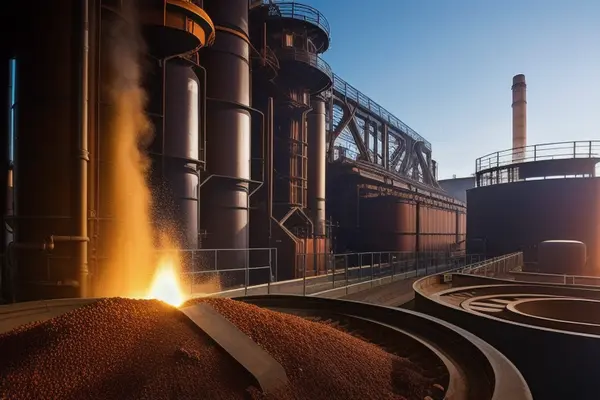Table of Contents:
Introduction to Steel Making Process and Its Importance
Welcome to our discussion about the steel making process and why it's so important. Steel, a versatile and durable material, has become indispensable in our daily lives. It forms the backbone of industries, from construction and transportation to appliances and packaging. But have you ever wondered how this versatile material is made?
The production of steel is a complex process that requires a thorough understanding of different raw materials and how they contribute to the final product. The steel manufacturing process broadens our horizons, emphasizing the significance of steel's raw materials and their effect on the quality, strength, and properties of the final product.
In this article, we aim to unlock the secrets of raw materials used in the steel making process. We'll take an in-depth look at how these elements contribute to creating robust, reliable, and high-quality steel used worldwide. So, let's delve into the fascinating world of steel production.
FAQ on Raw Materials in the Steel Making Process
What are the key raw materials in steel making?
The primary raw materials in the steel making process include iron ore, coal, and limestone. Other materials such as flux materials including limestone and dolomite, and metallurgical coke are also important.
Why are raw materials important in steel making?
Raw materials are crucial in steel making as they influence the process efficiency, energy consumption, and overall quality of the steel. Different raw materials provide different characteristics to the steel.
How are raw materials used in the steel making process?
Raw materials are transformed in the steel making process. Iron ore and metallurgical coal are primarily charged in blast furnace where iron ore is converted to liquid hot metal. On the other hand, coke and limestone are used to remove impurities.
How is Iron ore important in steel making?
Iron ore is the primary source of iron for the steel industry. It's used to produce iron, which is then used to make steel. Different grades of iron ore can be used to adjust the final properties of the steel.
How does limestone play a role in steel making?
Limestone acts as a flux in the steel making process, it helps in the removal of impurities such as phosphorus and sulphur. Limestone is converted into lime in the steel making process which is then used to remove impurities present in the steel.





